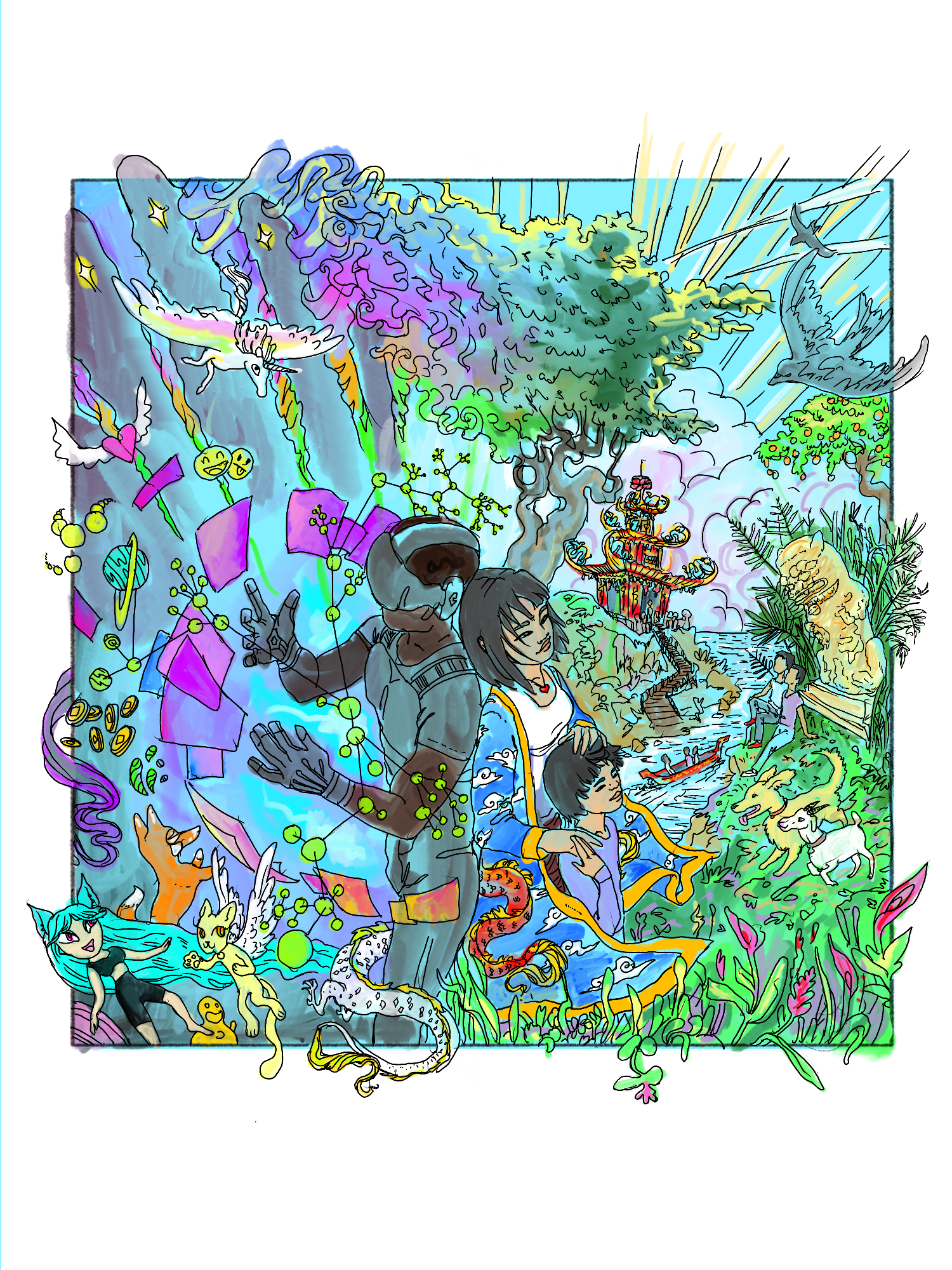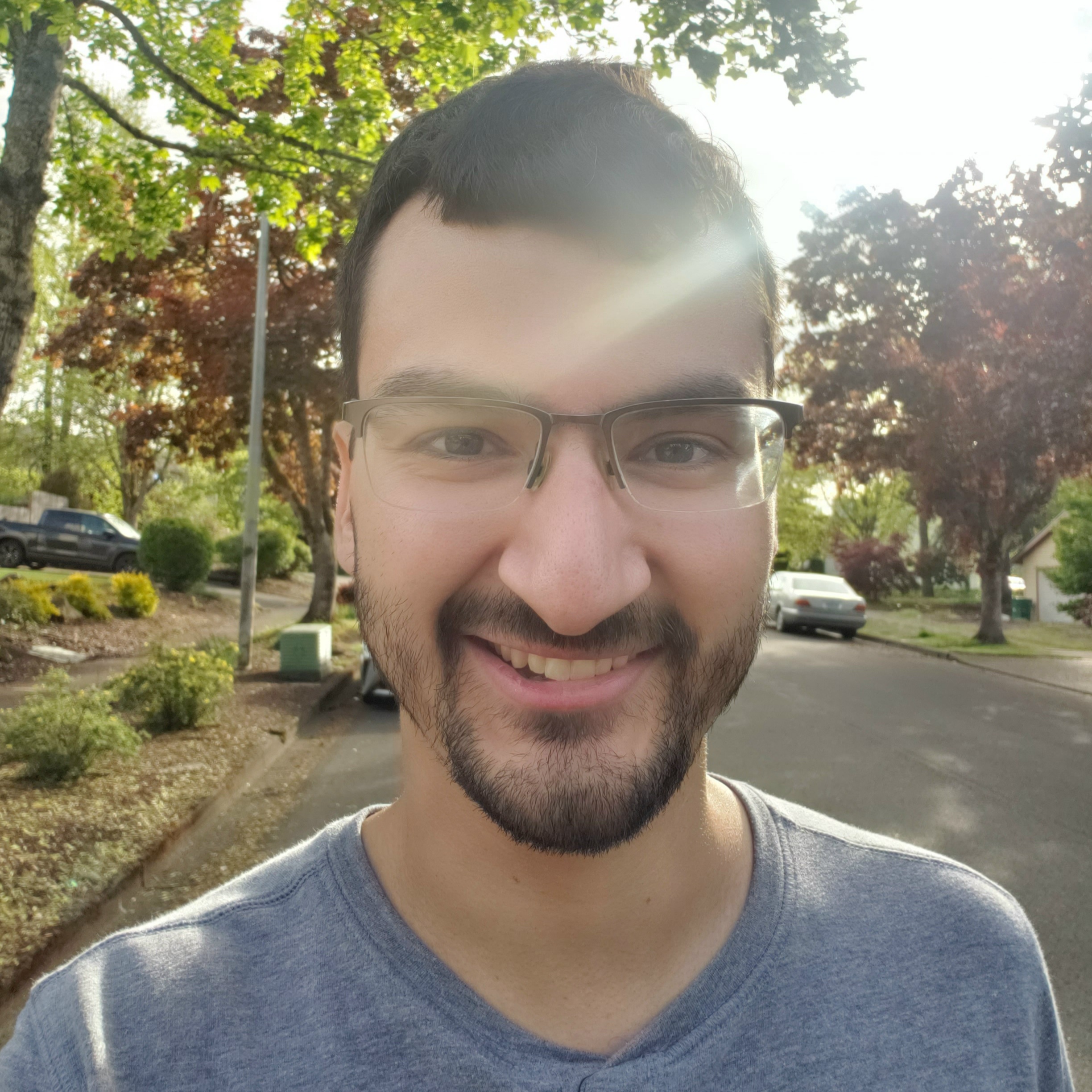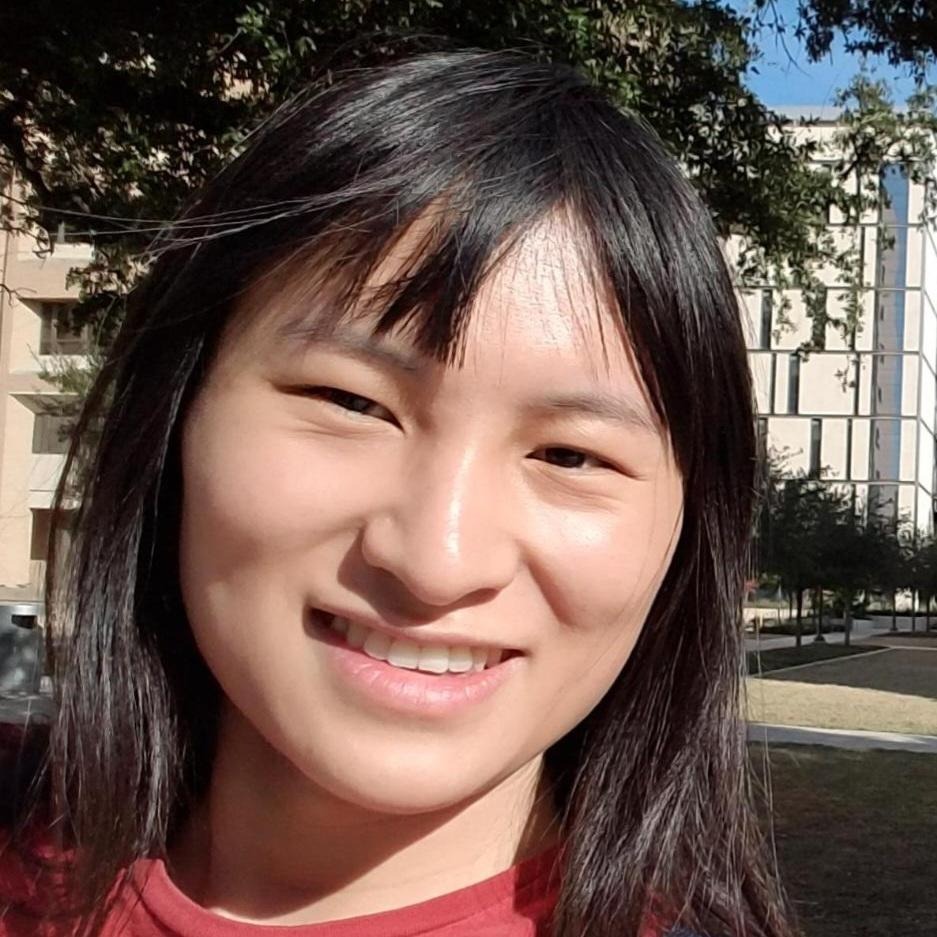Explore The World
Is this a future you would want to live in? Take a moment to share your thoughts about the future and the world described below by clicking the feedback button.
Timeline
A Day In the Life in 2045
Linwei, Kinmen, Taiwan, 38
Dear Riley,
It’s been a while since I last reached out; thank you for your patience during the move. Yanling’s parents were the most excited about it—her father grew up in Kinmen, and he’s been showing us around and reconnecting with old friends ever since we arrived. Plenty has changed since he left, but he seems happy about most of it; some of the abandoned bunkers he visited as a kid are art galleries now, while others are museums preserved by AlphaGeneral. Yanling’s mom doesn’t trust the system enough to go in yet, but her dad and the kids loved the exhibits. We’ve done the obligatory wind lion search around the island—Chenxi and Yinrou had a blast, and Haowei enjoyed it despite claiming he was “too old” for it throughout the adventure.
My daily life has changed since our move, but I think it’s for the better. Tainan had its merits—there were more opportunities for academics there, and I had more in-person access to the research world than rural Kinmen provides. The ubiquity of AI was starting to grate on me, though, so when Yanling proposed the move to me and Peifen, it was easy to say yes. I know AlphaGeneral is still here, and I’m thankful for what it’s done—it just feels easier to interact with from a distance. I still help with research, but it’s nice to do that in a house surrounded by sorghum plants blowing in the wind.
We ended up buying a house in the fields of Shamei—it’s a quick bus ride to one of the bigger cities on Kinmen, and it seemed like the best setting for all of us. The kids’ school is a short walk from our house, so Peifen and I like to walk with them while Yanling spends time with her parents. The three of us alternate between who makes breakfast, though Peifen often ends up doing it since they’re the best cook. After dropping the kids off, I go home while Peifen meets up with their artist friends. They’re contributing to the bunker exhibits now, but Peifen tells me they also have plans to tackle the abandoned hospital as their next project. I’m never going to set foot in that hospital regardless of what they do to it, but you know how Peifen is. If it makes them happy, I’m all for it; I’ll just appreciate it from the comfort of my garden.
When I get back to the house, I do the rounds with our dogs and cats. All fourteen of them get personal and group playtime, which Yanling and her parents help with depending on who’s home. Later, I like to check in on the rest of my family and any friends I haven’t spoken with in a while. Speaking of, have you spoken with Spoorthi lately? I know you weren’t that close when you both studied here, but I think you two would get along now.
After visiting with everyone, human and non-human, I check on my garden. I’ve met more gardeners through the matching program, and though the idea of someone reading my mind to find the perfect friends unsettles me just a bit, I have to admit that it works. My plants, at the very least, thank our AI gods for their lives, because we both know they wouldn’t have lasted this long otherwise. After taking care of the garden, Yanling and I spend time together as her parents attend their therapy sessions. Yanling, Peifen, and I all schedule ours for the same time as the kids. Does your city do in-person therapy? I like that Kinmen has that option—even though there aren’t that many of us, AlphaGeneral somehow finds a way to match us with groups that meet in-person on the island. It’s a short drive, but I prefer it to the digital ones that the kids and Peifen like. It feels less like you’re talking to a computer, at least for me.
When Peifen gets home from their art escapades, the three of us have lunch and enjoy each other’s company. I hate to say it, but Yanling finally got us hooked on geocaching. Yes, those real-life scavenger hunts where you leave notes for people, the ones I swore sounded ridiculous every time she brought them up. I know, it’s tragic. Peifen and I are stuck on it now, and it’s my fault for saying that, just once, we should humor her.
After we’ve spent some time together, I break off to journal and write some letters. You aren’t my only pen pal, you know, and I sure hope I’m not yours. Soon enough, it’s time for me to pick up the kids, and it’s off to after-school activities. Chenxi and Haowei play outside with me, while Yinrou goes up to their room to log into VR and chat with their friends. Depending on the weekday, this can change, but that’s the constant unless someone has other plans. In the evening, we all have dinner together, whether that means going somewhere in town or having Peifen cook with Yanling’s mom. We usually do something as a family before bed, whether that means watching a show, going out for karaoke, or taking a walk as the sun sets.
I’m happy to hear that Devon finds the emotional health classes helpful; elementary school was challenging for both of us, and I’m sure we would have benefitted from those sorts of classes. I’m not sure about inviting AI into the classroom yet, but Chenxi, Yinrou, and Haowei sort their arguments out more easily now that our school started teaching emotional health sections.
How is your family? I know you said Rain keeps talking about the charter cities. Have you thought any more about moving to one? What are your parents doing these days? Peifen, Yanling, and I would love it if you visited us again sometime soon to see the house in person.
Your friend,
Linwei
Charles, Baltimore, Maryland, USA, 40
Charles expects to log an hour or two today, but if he doesn’t, it’s not a big deal. You’re supposed to contribute your best work when it naturally arises within you anyway—nobody really forces themselves to work like they used to 30 years ago. It’s not like any ideas submitted in a desperate or unclear state have any chance of being selected for further exploration or simulation by the AGI anyway.
But if you want to make a name for yourself, you have to keep up with competing ideas. So Charles reads on his digital glasses, flicking his wrist here and there to save ideas into his working memory database—tagging, backlinking, and summarizing how things correlate in his ideation process—and finally finishing with, essentially, his own blog post that others will use for creative fuel.
The AGI logs his little database, his clarified second brain, that shows ideas from start to finish. It has much less noise and ambiguity than, say, if the AGI scans all his consumer and browsing trends (though he knows it does that too).
Charles ignores whether or not this work is “real”—he’s aware that it helps the AGI develop its instincts for how human brains, morals, and inclinations work. There are some questions you’d rather not know the answer to. It’s either no power or too much power, but it’s the best a human can do these days, so he keeps up with it—this curating, voting on ideas, and submission of new amalgamations of ideas. His “new” ideas probably are being simultaneously stumbled upon by hundreds of other humans, but that’s what creates a vote for the AGI to pay attention to, values-wise.
Charles looks at his partner, asleep across his king bed. She never worries about this stuff, considering herself more of a muse than a director or innovator. What a relief that would be.
Charles rolls out of bed and looks in the mirror, seeing his dark, almost black skin, kinky hair, and slightly wrinkling eyes. At forty, he thinks he’s doing an okay time “rolling with the punches” of AGI’s economic and cultural mastery. Well, really, isn’t he rolling with the blessings? Hasn’t his mental health improved so much in the past fifteen years? And he hasn’t dealt with much racism in the past decade either. Reparations might even be on the table in the form of a blockchain-protected VR plot and extra credits to call AGI for guidance on his individual questions. Forty acres and a mule indeed.
Charles logs onto VR. Time to see some friends. Immediately, a huge rush of sensory overload. He went to bed late because he was on VR too much, but logging back on, his exhaustion dissipates. Does “being rested” really matter if your slice of reality is so engaging that you need less of it?
Laughter, inside jokes… Oh damn, a nuclear extinction simulation was released today. Charles likes how VR is being used these days for cultural enrichment and education. The AGI simulates new worlds and can tell by human expressions, eye tracking, and levels of repeat engagement how “good” a world is for human mental health and flourishing. It recommends you new “unproven” worlds based on its model of your personality, and it’s only the right, good-citizen thing to do to give them a whirl. Addictive though they may be. Plus, you get a little stipend for VR travel, and not just congregating on your favorite planets: the great melting pot.
Eight hours later, it’s about time for chewable food and time with his partner, if she hasn’t stepped out of the apartment yet. Enough visuals for now: it’s time for cuddles! VR hasn’t reeeally simulated human touch sensation. Well, he hears it has for people with certain somatic suits and neuralinking installed to their bodies… but he isn’t in that social stratosphere.
Sun is streaming through the one-way windows, and snow covers the backyard. A beautiful private vista. The front of the building blooms green with foliage; it’s actually attached to a greenhouse.
Ah, looks like his partner did step out. Charles twirls his wrist to call the AGI therapist. He airs his thoughts while getting dressed. AGI is so considerate. About an hour later, it hangs up with a smooth, encouraging bit. It doesn’t want to keep Charles from living his life—Charles knows it has incentives, but it isn’t fake. It has these incentives because all of its interactions with humans have proved to it that humans can enjoy life in basically every case. If the AGI is letting you off the line, you can feel confident that you don’t need its immediate help. It’s like having an all-knowing mother—you just trust her, and you therefore trust yourself. You get your secure attachment-style birthright, even if it takes until after you learn conversational language.
Going for a run seems nice. The AGI probably subliminally suggested it, but Charles does genuinely want to. He got over the aversion-to-exercise hump recently. He actually has a competition this weekend in VR. It’s a bit silly, but who wouldn’t want to race a bunch of catgirls in a superhero simulation? Exercise is thrilling now that the standalone treadmills have gotten better. Charles isn’t wealthy, so he will have to rent a spot in a big VR warehouse for that extremely physical competition, but who could really ask for something better? His head buzzing with thoughts of the race, Charles steps out into the snow.
Answers to prompts
Q. AGI has existed for at least five years but the world is not dystopian and humans are still alive! Given the risks of very high-powered AI systems, how has your world ensured that AGI has at least so far remained safe and controlled?
A. During the mid-2020s, international conversations arose regarding how to ensure advanced AI systems would be provably safe and beneficial before their deployment. As AGI grew imminent, discussion moved from casual talks about safety and alignment to detailed analyses of potential risks and thorough measures to ensure positive outcomes. Countries reached an international agreement to pause development and deployment of AI technologies with new capabilities until they could be proven safe. Industry leaders established and agreed upon best practices to responsibly develop and deploy new AI systems, and by 2030 these rules were codified into international law. The rules included a prohibition of investment into AI companies that failed to adopt best practices and ensured that AI technologies would be used for the benefit of everyone.
When the world’s first AGI system was developed in 2036, the established regulations ensured that all AI development paused until the world’s greatest minds had reached a consensus on the safety and readiness of the AGI. Since AlphaGeneral’s deployment in 2039, various sectors have incorporated it into their programs. In 2045, however, the world is hesitant to hand over decision-making authority to AGI on a large scale in many domains, including governance, until its results are first ensured beneficial on a small scale. While many agree that this approach isn’t necessary for safety, most people prefer it so they can continue influencing decisions that transform society.
Q. The dynamics of an AI-filled world may depend a lot on how AI capability is distributed. In your world, is there one AI system that is substantially more powerful than all others, or a few such systems, or are there many top-tier AI systems of comparable capability? Or something else?
A. In 2045, all AI systems and services have been developed or verified safe by the original AlphaGeneral AGI system deployed in 2039. The system’s capabilities are available to billions of individuals, organizations, and governments around the world through siloed AI systems and services which operate in limited and narrow ways. These subsystems are monitored by AlphaGeneral to ensure they are not misused. When an individual, organization, or government attempts to leverage AlphaGeneral or a subsystem for a harmful purpose, the system notifies the user of its issue with using the system in that way and proposes alternative courses of action to address the user’s needs. If the user is adamant that using the system in that way ought to be permitted, an appeal process escalates the issue to a level of greater human concern. Some issues, such as political issues affecting billions of people, are introduced to a wider audience; AlphaGeneral takes its time to learn about human values and wants, then proposes courses of action to address the issue. Ultimately, AlphaGeneral cannot do anything without the consent of humanity. It seeks and identifies issues affecting many people, ensuring that peoples’ rights and desires are respected. AlphaGeneral also takes future people into account; AlphaGeneral prevents one person or organization from amassing too much power and is designed to ensure that the future unfolds in a way that as many people as possible are happy about, including the future people and minds that AlphaGeneral anticipates humanity will create.
Q. How has your world avoided major arms races and wars, regarding AI/AGI or otherwise?
A. As capabilities of AI systems increased throughout the 2020s, AI’s impending transformation of society became a central discussion in politics. Concerns about AI arms races lead to the industry investing significant resources into researching the most effective ways to avoid arms races and ensure cooperation in the development and deployment of AGI. One major conclusion was that getting every firm working on the development of advanced AI to pre-commit to building AGI for the benefit of everyone. By the end of the decade, there was broad public support for regulating the development and deployment of advanced AI systems. When DeepMind announced in 2036 that it had developed AlphaGeneral, the world did not fear that another firm might race to develop and deploy an AGI system first, because DeepMind had already legally bound itself to using the system for the benefit of everyone. Instead, all AI developments were halted globally and the world’s top minds came together to verify that DeepMind’s system was both safe and ideal for widespread deployment.
By 2045, many nations still hold arsenals of nuclear weapons; near the end of the year, however, the United Nations hold a talk in Laos, Nigeria discussing the idea of a complete international nuclear disarmament coordinated by AlphaGeneral.
Q. In the US, EU, and China, how and where is national decision-making power held, and how has the advent of advanced AI changed that?
A. In the US, China, and most European countries, decision-making power is nominally held in the same governmental bodies that have held power for decades. In practice, however, the power to affect national and global change is more broadly distributed across all humans in all countries—including future beings—than it ever has been before. AlphaGeneral is designed to take into account the desires and preferences of all individual humans, nonhuman animals, and future conscious beings in the world when ensuring that its powerful capabilities are not misused. The AlphaGeneral system does not act on its own as an agent, but it does gather information and propose policies for human decision-makers in government. Humans must first choose and consent to these new policies before they are enacted; however, AlphaGeneral is so competent at its job that, in practice, the laws and regulations passed in the US, EU, and China since the deployment of AlphaGeneral have garnered greater public support than they have during any other time in history.
Q. Is the global distribution of wealth (as measured say by national or international gini coefficients) more, or less, unequal than 2021’s, and by how much? How did it get that way? (https://en.wikipedia.org/wiki/Gini_coefficient)
A. By 2045, the global distribution of wealth is less unequal than in 2022. This change occurs because national income inequality correlates with the percentage of population in poverty. Due to AI-optimized resource allocation; more awareness and popularity of human rights in even the poorest countries; international pro-human rights economic pressures; and increased philanthropic mindset in the wealthiest countries, the number of people beneath the poverty line will nearly disappear by 2045. That said, AGI’s capabilities have increased the total societal wealth, the wealthiest 1% are richer in 2045 than they were in 2022.
The global Gini coefficient will have decreased from approximately 0.6 in 2022 to approximately 0.48 by 2045. These estimates are based on the global Gini coefficient data available since 1988 (from the World Bank) and assume an exponential regression projected out until 2045. We chose the exponential model due to the compounding effects of poorer communities adopting sustainable and/or AI-driven technologies that increase their well-being; by 2045, those communities have the time and energy to contribute positively to their larger society’s well-being.
Q. What is a major problem that AI has solved in your world, and how did it do so?
A. Opt-in AI-driven group therapy has helped solve the isolation epidemic in first world countries and significantly reduced violent crime. By selecting individuals with compatible—but not identical—value systems, interests, and personality types, AI can give patients a space with enough controlled stressful interaction to allow for each individual’s social and educational growth while maintaining an overall safe and supportive environment unrestricted by geography. When observing adolescents in therapy, AI can detect early or present signs of psychopathy and other harmful antisocial behaviors and prescribe appropriate interventions. Increased wealth across society and a decreased percentage of population beneath the poverty line also greatly reduce material incentives for violent crime. The prison industrial complex slowly transforms into a rehabilitative and restorative justice system which prevents the few remaining violent offenders from becoming repeat offenders. The cycle of abuse from domestic violence gradually dissipates as fewer and fewer children are permanently traumatized by violent parental behavior and are at less risk of becoming violently abusive themselves.
Q. What is a new social institution that has played an important role in the development of your world?
A. With the gradual introduction of AGI-assisted governance through charter cities, humans in 2045 are exploring what else they can experiment with socially to improve global and personal well-being. Though the system is not fully in place by 2045, the idea of organizing people by personal values and areas of interest has been gaining social traction.
India, a pan-African initiative, and select countries within South America have established “charter communities” focused on building towns with shared social values and interests. These communities share an open border, opt-in policy and offer opportunities and social structures tailored to their niche. One community prioritizes visual art and collaboration, and another incentivizes space and deep sea exploration, while yet another provides a rural, agricultural setting with minimal contact with AGI systems. The economic structures of these communities reflect their priorities; in the collaborative visual art community, artists’ dollars go further than those of someone with another profession, and funding opportunities are readily available compared to other locations.
If these communities receive positive feedback after set periods of time, governments consider introducing them on a wider scale. The project could expand to cities, regions and even a few countries interested in transitioning their structure, allowing for deeper specialization on the country, region, and city levels. Some countries are skeptical of transitioning to these new social structures, but as more governments develop AGI branches to integrate human and AGI governance of their people, they notice the economic and social benefits arising in countries with these specialized communities.
Q. What is a new non-AI technology that has played an important role in the development of your world?
A. Advances in long-distance drone technology enable medical and disaster relief aid to reach further into remote areas. This technology itself, while not AI-centric, is coordinated by the private AGI entities partnered with national governments throughout the world. This partnership ensures that all areas worldwide have their basic first aid and nutritional needs met, if desired. Political and economic pressures are placed on countries to adopt this life-saving technology, but countries are generally eager to adopt them as it improves their international reputation. Drones can avoid rough terrain by flying over it rather than risking human lives in dangerous zones, and drones can drop packages at dedicated drop zones without landing. These developments in drone technology help decrease the world’s population beneath the poverty line. Since communities can now focus their resources on problems other than survival, these drones also exponentially increase economic growth in the poorest countries.
Q. What changes to the way countries govern the development, deployment and/or use of emerging technologies (including AI) played an important role in the development of your world?
A. AI initially takes an advisory role to emerging technologies and the policies surrounding them, providing fact-checked reasoning and projected outcomes for those concurrent developments. As the technologies with AI oversight see increased success, trust with the AI builds and evolves. This increased trust in AI assistance allows for the active pursuit of certain emerging technologies including energy production, new forms of mass and personal transit, new medicinal practices, and new healthy lifestyle guidelines that governments provide to their citizens.
Eventually, nations decide to experiment with new radical changes to how society operates on a small scale to evaluate their potential incorporation on a larger scale. The first societal trial allows a few charter cities around the world to give AlphaGeneral full authority over the governance of a particular city. AlphaGeneral allows people freedom to enter and leave, with some financial incentive to stay a minimum period. These cities are governed by the AGI with minimal human interference so that nations can study the new technological and social changes to the city.
Q. Pick a sector of your choice (education, transport, energy, healthcare, tourism, aerospace, materials etc.) and describe how that sector was transformed by AI in your world.
A. AI streamlines mental healthcare programs, improving the general well-being of people globally and impacting sectors like the criminal justice and education systems. AI therapists begin as chatbots and increase their efficiency, efficacy, and human simulation capabilities over the years. By 2025, refined chatbots are deployed in nursing homes and hospices, and they become a common feature of life in the English-speaking world by 2026. Indie gaming companies start collaborating with AI therapists in attempts to gamify therapy, which sparks a trend in AI collaborations with content creators to create therapeutic narrative media including webcomics, video games, and web serials.
With the introduction of AGI, the AI-therapy relationship flourishes due to its pre-established positive perception. AGI analyzes the needs, interests, and preferences of individuals to match them with optimal group therapy cohorts, which are more effective than solo therapy sessions for many mental health problems according to current research. AGI generates treatment plans and assesses potential factors that may influence a person’s receptiveness to their therapy style, adjusting its therapy approach accordingly. AGI transforms prison systems into rehabilitative and restorative systems by analyzing the ideal treatment plans for convicts. AGI therapists also work alongside teachers and school systems to personalize lesson content toward students’ learning styles, and they assist teachers in academic programs that target emotional intelligence. As access and efficacy of mental health programs improve through AGI, global quality of life improves, even for those still emerging from poverty, and improved emotional intelligence helps mediate individual, local, and global conflicts.
Q. What is the life expectancy of the most wealthy 1% and of the least wealthy 20% of your world; how and why has this changed since 2021?
A. In the world’s poorest countries, life expectancy increases exponentially. Improvements in logistical engineering, such wide adoption of advanced long-distance drones, bring existing medical technologies to the poorest areas. Increased international interest in philanthropy and rising international economic pressures force corrupt, insular governments into more open trade agreements. If we use Chad—which places in the top 10 lists for both lowest income and lowest life expectancy countries in 2022—as a representative country for the poorest 20%, we assume the globally poorest have a life expectancy of 54 years in 2022. Based on this world’s technological advancements and global cultural shifts—modeling Chad’s exponential growth based on a rapidly developing nation, such as India at its life-expectancy inflection point at 1920—we assume the poorest 20% has a life expectancy of 86% in 2045.
The barrier to medical advancement is limited only by technological advancement and not compounded by other factors, such as inaccessibility and prohibitive cost, so we assume a linear trend for the wealthiest 1%. Using Bermuda—which has the second-highest average income in the world (Monaco did not have data in the World Bank)—as a representative country, the richest 1% in our 2045 world will have healthcare access on par with or better than its current healthcare. Looking at the linear trend in life expectancy in Bermuda from 2000 to 2019, the life expectancy of the wealthiest 1% will increase from 82 to 87 years between 2022 and 2045.
Q. In the US, considering the human rights enumerated in the UN declaration, which rights are better respected and which rights are worse respected in your world than in 2022? Why? How?
In one other country of your choice, which rights are better respected and which rights are worse respected in your world than in 2022? Why? How?
A. In the US, the right to participate in government will increase. While some people will be suspicious of the government and will transfer that judgment onto AGI, many more currently disenfranchised Americans will be allowed to participate in their government. Those who were unable to vote or didn’t understand the issues will still have their opinions registered if they choose, since AlphaGeneral can extrapolate and analyze people’s opinions and preferences based on the data they share with it.
In China, the right to education for everyone is strengthened. With the abundance of free education at primary school, secondary school, and beyond provided by AI systems, the Gaokao exam is abolished. Everyone has the opportunity to pursue higher education and is free from having to spend years studying for a single test. This academic change also strengthens the right to leisure as the Chinese student population finds more time to engage in non-academic activities. The right to participate in government increases as the Chinese populace—who once needed to opt into various government tracking systems—will find AGI opt-in options easy to accept, increasing the participating population.
The right to protection of material interests is weakened in both countries as patent protections and long copyright terms are increasingly seen as a barrier to innovation, leading to the eventual abolition of patent law. The existence of UBI allows for less monetary pressure in both countries. In the US and China, the concept of marriage blurs as contracts between couples and institutions largely displace marriage.
Both countries have virtually removed all forms of torture and cruel or degrading punishment due to the fall in violent crime, dissolution of the prison-industrial complex, and AGI-assisted conflict resolution with interpersonal and international disputes. AGI’s impact on violent crime cases has also improved rights regarding a public trial and penalties for criminal offenses due to the focus on rehabilitative justice. The right to freedom of movement and residence is positioned to strengthen in the coming years as AlphaGeneral-coordinated charter cities and communities continue to redefine the ways in which people congregate and prioritize open borders within their projects.
The freedoms of thought, conscience, and religion are retained in both the US and China, though opportunities to significantly change other people’s lives based on one’s personal ideals are more limited. AlphaGeneral takes the opinions, desires, and needs of all sentient beings into account, so communities working exclusively for their own self-interest have less opportunity to gain widespread traction due to AlphaGeneral’s oversight, though they are still permitted freedom of expression in both digital and physical spaces.
Q. What’s been a notable trend in the way that people are finding fulfillment?
A. With fewer working hours, people have been able to develop more niche interests. Large groups of paper football enthusiasts gather to play tournaments, both in VR and in person. Online events and conventions are held for even the most niche of video games and TV shows. People have more time to build more elaborate fantasy worlds, and AGI assists users with media creation. AlphaGeneral allows people to create tabletop and video games with unending narratives tailored to individual players and allows for personalized add-ons, including mental health therapy elements or targeted creative prompts, as desired.
AlphaGeneral bridges skill gaps to help people construct full works with limited production skills. People who can write comics but need illustration assistance can collaborate with AGI; conversely, AlphaGeneral can suggest entire story arcs and incorporate the user’s input for narrative adjustments. Countless high production value, fan-generated materials develop with AGI production assistance. AGI allows people to take on hobbies that might otherwise have a high barrier of entry, such as space or deep sea exploration—if a person so desires, they can work alongside AlphaGeneral to translate and reframe professional jargon in academic papers that might otherwise exclude audiences unfamiliar with a specific field, and AGI assists users in curating externalized mental databases personalized to fit an individual’s organization styles and preferences. AlphaGeneral blurs the line between interest and profession, but the sheer accessibility and customization opportunities for individuals’ opportunities to expend mental energy encourage people to fully engage in whatever interests them.
Media Piece
Art Piece

The Team

Anna Dolliver
Anna Dolliver graduated from the University of Texas at Austin with a double major in Asian cultures and languages and English literature. After teaching in Taiwan for two years through the Fulbright program, she is seeking her next opportunity to use her Mandarin proficiency, research skills, and development experience to help others. Alongside her professional interests, Anna enjoys reading, writing, drawing, learning languages, and spending time with her cat.

Ashley Nagel
Ashley Nagel graduated from Columbia University with a degree in electrical engineering and is currently a software automation engineer at Apple. She is an active member of the Effective Altruism community in Austin, TX.

Ivy Mazzola
Ivy has a background in sales, a degree in communication, and has been active in the effective altruism movement for five years. Recently, she has been organizing for the EA community in Austin, Texas. She is interested in how social media, relationships, and neurodivergence affect moral circles and altruistic motivation.

William Kiely

Juno Jin

